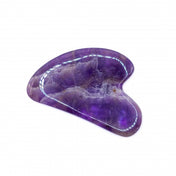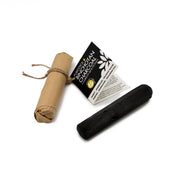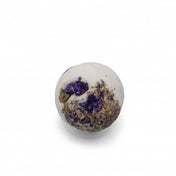What are endocrine disruptors? | Common Chemicals | Health Implications | Animals & Wildlife | Safe Alternatives | Children | Conclusion
In our quest for spotless homes, we often turn to a plethora of cleaning products promising to eradicate germs and grime. However, the shiny surfaces and fresh scents come at a hidden cost. Many of these home cleaning products are filled with harmful chemicals that pose significant risks to our health, our children's health, and even the well-being of our pets. One of the most concerning groups of chemicals found in these products are endocrine disruptors.
What Are Endocrine Disruptors?
Endocrine disruptors are chemicals that can interfere with the endocrine (hormonal) system in our bodies. These disruptions can cause cancerous tumors, birth defects, and other developmental disorders. The delicate balance of hormones is crucial for the regulation of mood, growth and development, tissue function, metabolism, and sexual function. When this balance is disturbed, it can lead to serious health issues.
Common Endocrine Disruptors in Home Cleaning Products
Many conventional cleaning products contain chemicals that act as endocrine disruptors. Some of the most prevalent include:
-
Phthalates: Found in many fragranced products like air fresheners, dish soap, and even toilet paper. Phthalates can be absorbed through the skin or inhaled, leading to hormonal imbalances.
-
Triclosan: An antibacterial agent found in many dishwashing detergents and hand soaps. Triclosan is linked to antibiotic resistance and has been shown to disrupt thyroid hormone metabolism.
-
Nonylphenol ethoxylates (NPEs): Often found in laundry detergents and all-purpose cleaners. NPEs can break down into nonylphenol, a compound known to disrupt hormone function and impact aquatic life.
-
Parabens: Commonly used as preservatives in a variety of cleaning products. Parabens mimic estrogen and can interfere with the body’s hormonal balance.
The Health Implications
The presence of endocrine disruptors in our homes is alarming due to their association with numerous health problems:
Reproductive Issues: Exposure to endocrine disruptors has been linked to fertility problems, reduced sperm count, and developmental issues in children.
Hormonal Imbalances: These chemicals can cause disruptions in thyroid function, leading to metabolism issues, weight gain, and fatigue.
Increased Cancer Risk: Some endocrine disruptors are classified as carcinogens and have been linked to breast cancer, prostate cancer, and other hormone-related cancers.
Developmental and Behavioral Problems: In children, exposure can result in developmental delays, behavioral issues, and learning difficulties.
Impact on Pets and Wildlife
Our furry friends are not immune to the effects of these harmful chemicals. Pets can absorb these toxins through their paws, by grooming themselves, or by breathing in fumes. Endocrine disruptors can lead to similar health issues in pets as in humans, including reproductive problems and cancer.
Moreover, when cleaning products are washed down the drain, they eventually end up in our waterways, impacting aquatic life. These chemicals can disrupt the hormonal systems of fish and other wildlife, leading to reproductive and developmental issues and threatening entire ecosystems.
Safer Alternatives for a Healthier Home
Fortunately, there are safer alternatives that can help you maintain a clean home without compromising the health of your family, pets, and the environment:
-
Natural Cleaning Products: Look for products labeled as non-toxic, biodegradable, and free from artificial fragrances and dyes. Here is what we recommend.
-
DIY Cleaning Solutions: Simple household items like vinegar, baking soda, lemon juice, and essential oils can be combined to create effective and safe cleaning solutions.
-
Eco-Friendly Brands: Support brands that prioritize sustainability and transparency about their ingredients.
-
Regular Ventilation: Keep your home well-ventilated to reduce indoor air pollution and decrease the accumulation of harmful chemicals.
Protecting Our Children
Children are particularly vulnerable to the harmful effects of chemical exposure. Their developing bodies and immune systems can be more easily disrupted by endocrine-disrupting chemicals found in conventional cleaning products. Here are some specific ways you can protect your children:
-
Choose Baby-Safe Products: Look for cleaning products specifically labeled as safe for use around children. These products are usually free from harsh chemicals and are formulated to be gentle on sensitive skin and lungs. Here is what we recommend.
-
Keep Cleaners Out of Reach: Store all cleaning products, even natural ones, out of reach of young children to prevent accidental ingestion or skin contact.
-
Encourage Hand Washing: Teach children to wash their hands regularly, especially after playing on floors or surfaces that may have been cleaned with chemical products.
-
Use Natural Alternatives: Opt for natural cleaning solutions for areas where children play, eat, and sleep. Homemade cleaning solutions using vinegar, baking soda, and essential oils can be just as effective as commercial products without the harmful side effects.
-
Ventilate After Cleaning: Ensure good ventilation in rooms where you have used cleaning products to reduce the concentration of any airborne chemicals.
By making these simple changes, you can significantly reduce your child's exposure to harmful chemicals and create a safer, healthier home environment.
Conclusion
Awareness is the first step towards making healthier choices for your home. By understanding the risks associated with conventional cleaning products and opting for safer alternatives, you can protect your health, the health of your loved ones, and the environment. Embrace the power of natural, eco-friendly cleaning solutions and create a healthier, happier home for everyone.


















